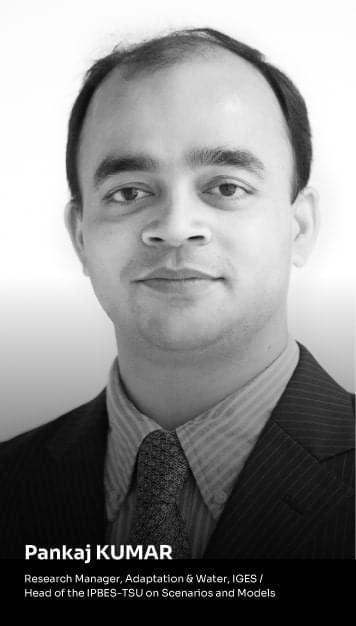Parallel Session 2 (PS-2)
- 23 July 2024
- JST 15:30 - 16:30 (GMT+09:00)
- Simultaneous interpretation
Summary
The session underscored the role of partnerships in addressing global change challenges and promoting sustainability. The first speaker discussed how socio-hydrological approaches can help design adaptation and mitigation measures to support sustainable water management in vulnerable riverine islands in Bangladesh, India and Viet Nam. Findings demonstrated that collaborative efforts, combining top-down and bottom-up approaches, are essential to address water insecurity. The second speaker highlighted integrating indigenous knowledge with national commitments to catalyse local adaptation innovations in Nepal, Viet Nam and Fiji. Addressing challenges such as climate impacts, the presentation emphasised the importance of leveraging indigenous knowledge alongside technologies to develop local capacity. The third speaker presented how APN projects on adaptation, loss and damage and risk insurance enhance resilience through regional partnerships. Collaboration supported by clear incentives strengthens resilience and facilitates efficient climate adaptation and disaster reduction strategies. The panel discussion provided in-depth discussion on the significance of knowledge sharing, generating ownership among local stakeholders and co-creating solutions. Mentimeter provided insights into key elements, challenges and innovative strategies for building successful partnerships. These included trust, shared goals, financial resources and capacity building, while challenges included financial constraints, inadequate understanding of local needs, diverse stakeholder objectives and lack of accountability.
Key Messages- Integrating socio-hydrology into sustainability research is crucial for addressing global change. Socio-hydrological strategies manage water resources effectively and enhance community adaptation by embedding local knowledge into scientific models. This increases model relevance, fosters local ownership, and improves policy impact. Cross-disciplinary and cross-sectoral initiatives are key to developing sustainable water management solutions.
- Engaging diverse stakeholders, especially indigenous communities, is vital for inclusive research. Incorporating indigenous knowledge into national policies fosters local adaptation and culturally relevant solutions. This collaboration merges traditional practices with modern science, building capacity and ensuring widely accepted adaptation strategies, thereby enhancing sustainability efforts.
- Sustained partnerships with clear incentives and shared goals are essential for resilience and sustainable development. Long-term collaboration involves ongoing knowledge sharing and balanced engagement across sectors, including academia, communities, and policymakers. Focusing on policy-driven solutions and practical applications strengthens resilience, climate adaptation, and disaster risk reduction.
Panel Discussion
Session Programme PDF (123KB)
SpeakerLinda STEVENSON, Acting Director/Programme Director, APN, Asia-Pacific Network for Global Change Research (APN)
SpeakerPankaj KUMAR, Research Manager, Adaptation & Water, IGES; Head of the IPBES-TSU on Scenarios and Models
Speaker
KASUGA Fumiko, Director, Future Earth Global Secretariat Hub Japan
Speaker
Ria LAMBINO, Deputy Director, Future Earth Global Secretariat Hub Japan / Specially Appointed Specialist, Fundamental Research Department, Research Institute for Humanity and Nature (RIHN)
Audience InteractionNafesa ISMAIL, Senior Programme Officer, Asia-Pacific Network for Global Change Research (APN)
Closing Remarks
HAISA Yukihiro, Director, Climate Change Science and Adaptation Office, Global Environment Bureau, Ministry of the Environment, Japan

Linda STEVENSON
Acting Director/Programme Director, APN, Asia-Pacific Network for Global Change Research (APN)

Pankaj KUMAR
Research Manager, Adaptation & Water, IGES; Head of the IPBES-TSU on Scenarios and Models

Binaya Raj SHIVAKOTI
Senior Policy Researcher, Adaptation & Water, IGES

Sivapuram Ventaka Rama Krishna PRABHAKAR
Principal Policy Researcher, Adaptation & Water, IGES

KASUGA Fumiko
Director, Future Earth Global Secretariat Hub Japan

Ria LAMBINO
Deputy Director, Future Earth Global Secretariat Hub Japan / Specially Appointed Specialist, Fundamental Research Department, Research Institute for Humanity and Nature (RIHN)

Nafesa ISMAIL
Senior Programme Officer, Asia-Pacific Network for Global Change Research (APN)

HAISA Yukihiro
Director, Climate Change Science and Adaptation Office, Global Environment Bureau, Ministry of the Environment, Japan

















-min.JPG)
-min.JPG)
-min.JPG)
-min.JPG)
-min.JPG)
-min.JPG)
-min.JPG)
-min.JPG)
-min.JPG)
-min.JPG)
-min.JPG)
-min.JPG)